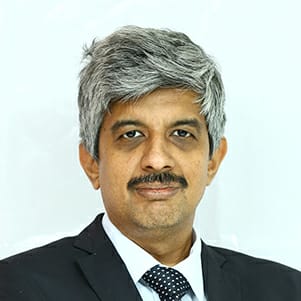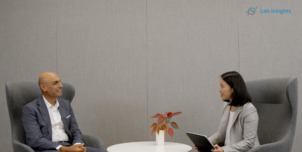In a recent forum hosted by Roche Diagnostics India, healthcare leaders from across the country came together to discuss the role of diagnostics in creating value for local healthcare systems. The conversation covered many topics, but often came back to a recurring theme: the need for greater collaboration between clinical labs and clinicians in their shared quest to improve patient care.
Becoming a shoulder-to-shoulder partner
The event opened with a keynote address from Dr S Narayani, Zonal Director (Mumbai) at Fortis Healthcare, a leading private healthcare group in India. One of her key points was that clinical labs should be advisors rather than backroom support providers for clinical colleagues. They should have a seat at the table when a hospital launches a new specialty, advising on screening protocols and setting expectations around testing, and consider going on rounds with clinicians to build stronger relationships or making sure that clinical labs have a seat at the table when a hospital launches a new specialty.
“Labs should be complete shoulder-to-shoulder partners with clinicians,” said Dr Narayani. “The lab team should come out of the lab, sit with the clinicians, and have a conversation about patient care and outcome strategy, pinpointing when in that process lab tests will be important.”
Dr Subramanian Swaminathan, Chair of the Transplant ID Committee and Director of Infectious Diseases at Gleneagles Global Hospital, agreed that clinical labs can do more to partner with their clinical colleagues. He believes that through better communication with clinicians, lab professionals can give them greater confidence in the results they receive, as well as a better understanding of the range of tests that are available and valuable information to prevent misinterpretation of lab reports.
“There’s a treasure trove of information available to the clinicians if they ask the right question,” said Dr Swaminathan. “But often, clinicians and lab teams do not speak the same language.”
Experts agreed that clinical labs should not wait for clinicians to ask for their input, but rather should proactively come forward to build the relationship. Gaurav Loria, Group Chief Quality Officer & Head Operations at Apollo Hospitals, suggested that lab professionals should establish forums to gather structured, regular feedback from clinicians to optimise their services and build credibility within the hospital.
COVID-19 as a catalyst for change
While the meeting did not focus exclusively on the COVID-19 pandemic, several speakers offered examples of how the current situation helped to catalyse collaboration between the lab and other hospital stakeholders. At Fortis Hospital, for example, lab professionals played a valuable role in adding new diagnostic capabilities, but also made other contributions, such as spotting patterns to the secondary infections that were being seen in COVID-19 patients and coming up with an antibiotic protocol to match it.
As their datasets and expertise grew, lab professionals at Fortis Hospital also helped contribute to public health screening systems. By keeping an eye on where infected patients were coming from, they were able to pinpoint emerging hotspots and help hospital administrators set up quarantine protocols for staff members coming from those areas. These same labs were also responsible for developing the deep-cleaning protocols used throughout healthcare facilities to ensure staff safety.








